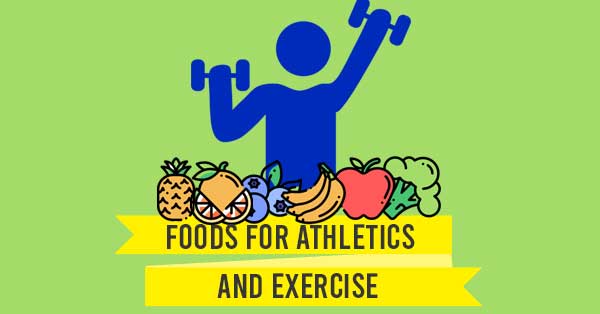Have you ever noticed a difference in your performance when exercising depending on what you ate earlier in the day? This is because the nutrients (or lack of) fuels your energy level.
If you are striving to perform well in a competition or find an edge to continue improving on your personal best, then put consideration into what you eat before you start exercising.
Start Early
Do not wait to eat till right before you are going to start exercising to eat. Rather, plan to start eating 2 hours before you exercise. Of course, water is a key component, but healthy carbohydrates like whole-grain cereals, whole wheat toast, low-fat or fat-free yogurt, whole grain pasta, brown rice, or fruits and vegetables are all also great options.
If you are in a bind and do not have much time to eat before exercising, an apple or banana is a great option for a quick bite.
Finish Strong
Upon completing your exercise, drink water to rehydrate your body. Carbohydrates, which are the key source of energy for your muscles, will also need to be replenished.
Protein is great after you exercise! It is smart to avoid protein before your exercise as protein is known to digest slower in your stomach than many other foods. This in turn can take away energy from other parts of the body according to the American Heart Association.
Count your Calories
Consuming too few or too many calories can also play a role in impacting your performance. After all, those calories are part of your “energy intake.” According to the Mayo Clinic, “inadequate energy intake can reduce or negate the benefits of training because it interferes with performance output and impairs recovery.”
How many calories you should consume is dependent on your physical activity, BMI, as well as other factors. You can speak to your medical provider for more information in regard to your calorie intake.
Key Catagories
There are three key nutrient categories for athletes to pay attention to in their foods:
Carbohydrates: 3 to 5 grams per pound of body weight daily
Protein: 0.5 to 0.8 grams per pound of body weight daily
Healthy fats: 0.45 grams per pound of body weight daily
Other nutrients you may want to consider include:
Vitamin D: Common deficiency in the United States
Calcium: Builds healthy bones/teeth and keeps your muscles from cramping
Iron: Forms red blood cells your body needs


